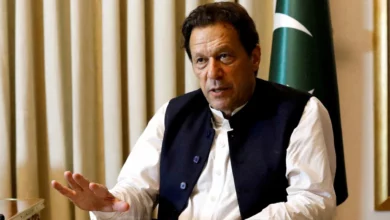Last week, at a meeting I was invited to with the liberal Democratic Front Party, a young party member demanded an end to Egyptian parliamentarians’ habit of providing services to their constituents to buy political support. He stressed the need to end the humiliation that parliamentary representatives who engage in such practices face when begging ministers for their signatures on such requests. Although I could appreciate the young man’s concerns, I responded that it’s common for parliamentary representatives to serve their constituents. In fact, doing so is at the very core of political representation.
A parliamentary representative has three main functions. The first is to represent his electoral constituency, and Egypt as a whole on issues of national importance. The second is to help draft and vote on legislation. The third is to monitor the performance of the executive branch, including the president, ministers, governors, and state agencies.
Rather than embodying these functions, Egyptian MPs in the past have represented the corruption of political life. By involving citizens in the process, corruption was rendered into a system. Rather than try to legally address their districts' problems, MPs used their positions to buy political influence among their constituents. For example, they would scramble to get ministers’ approval for various requests, such as securing jobs for select residents of their districts, even when they were not the best candidates for the job.
Parliamentarians that scurry to secure ministers’ approval for illegal requests cannot be expected to monitor these ministers’ performance or propose effective legislation to reform the sectors where these ministers operate. It is also unlikely that ministers will pay much attention to parliamentary questions raised by these representatives.
Parliamentarians that provide their constituents with services in-kind or use financial bribes to retain their seats are guilty of vote-buying. This kind of corrupt behavior was but one way that politicians bought the People’s Assembly (Egypt’s lower house of parliament).
But another way to buy the People’s Assembly, one that will most probably be used in the upcoming elections, is through campaign finance.
Candidates can spend hefty sums out of their own pockets. They may also receive large donations from individuals who seek to guarantee their MP’s loyalty. In both cases, the People’s Assembly and/or its representatives will be bought to serve particular interests. Meanwhile, those who lack financial resources will have no representation. The same could apply to candidates in presidential elections.
Given these dangers, Egyptian must prioritize the regulation of money in the political process before the upcoming parliamentary and presidential elections. We must insist that candidates be required to disclose detailed information about all donations they receive for their electoral campaigns, including the amount, the identity of the donor, and how the money has been spent. Those who fail to disclose such information should be severely punished. Egyptians have the right to know who funds their candidates and how much money candidates are spending out of their pockets in order to attain a political position. This disclosure will allow us to better assess the legitimacy of each candidate’s funds.
It’s also necessary to set a limit for campaign finance. All donations must be deposited in a special account, rather than the candidate’s personal account, to ensure that candidates do not make a personal profit.
We must also insist on the need to regulate campaign ads — disseminated through state-owned and private media outlets — and demand full disclosure of how these ads are funded. And candidates who successfully reach office should be monitored by citizens to ensure they do not give preferential treatment to their donors.
These and other safeguards can protect against those who wish to use money to buy the political process, like they did in the old Egypt. For a fledgling democracy, the use of money in politics is the most dangerous threat.
Translated from the Arabic Edition.




